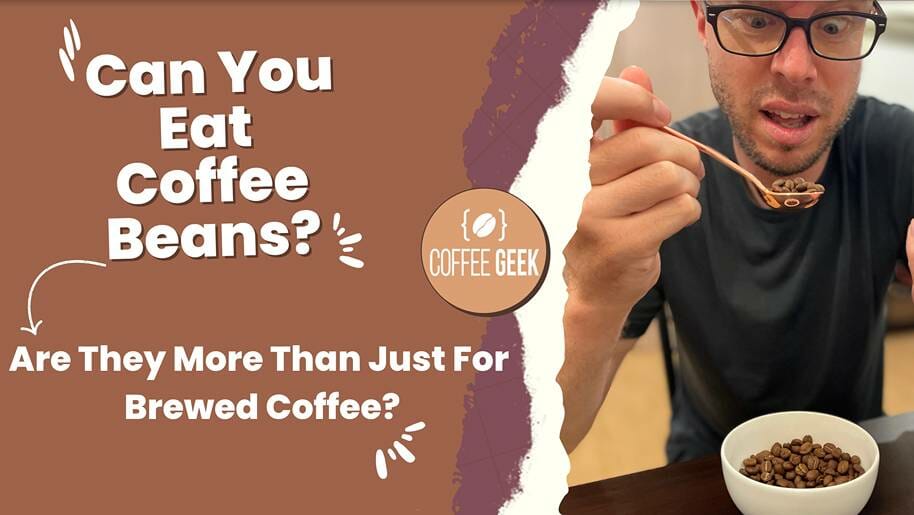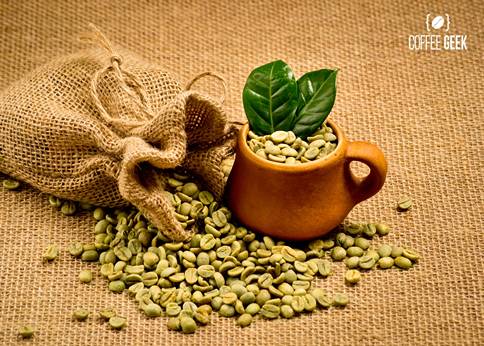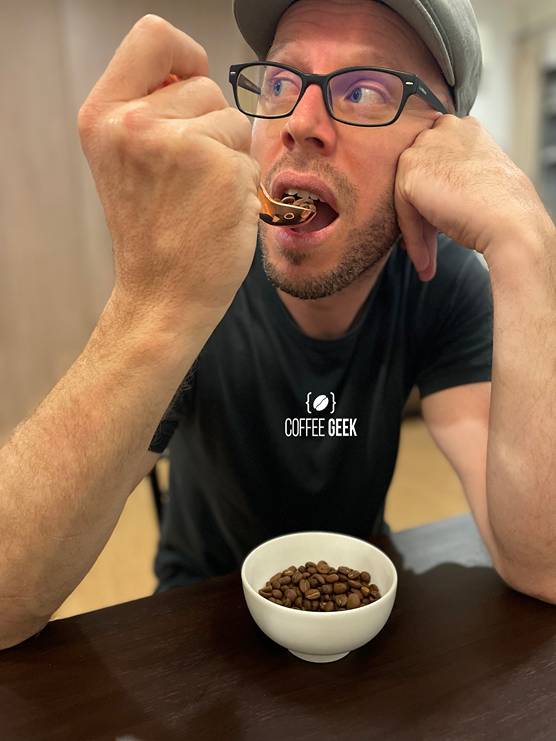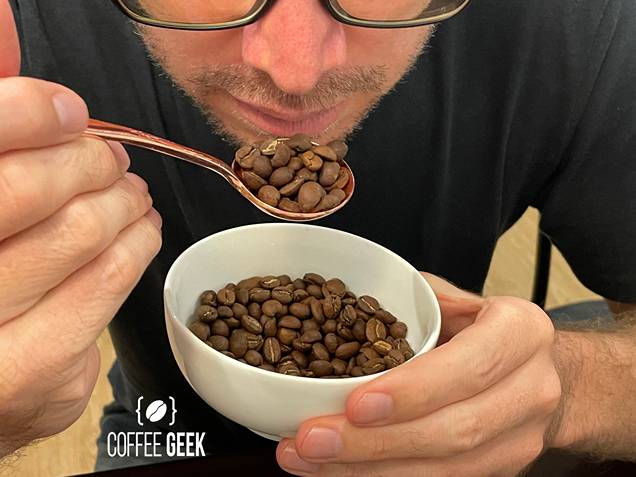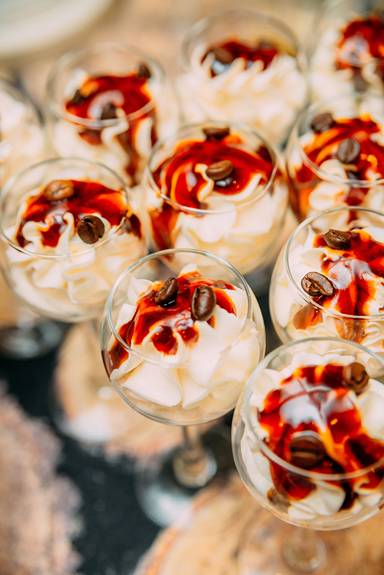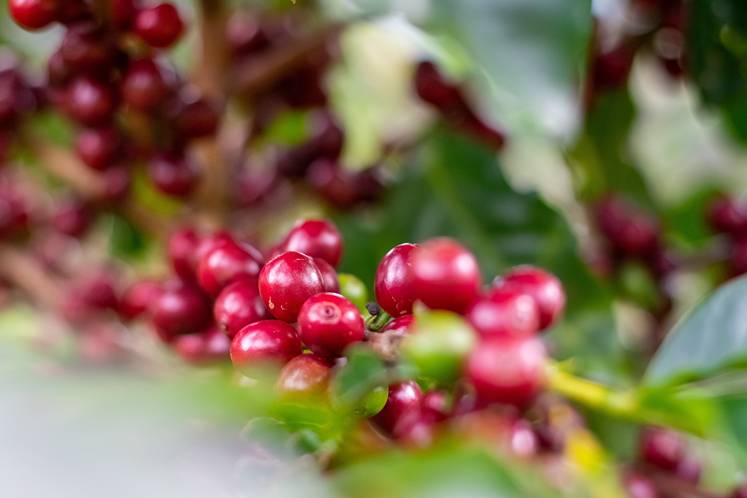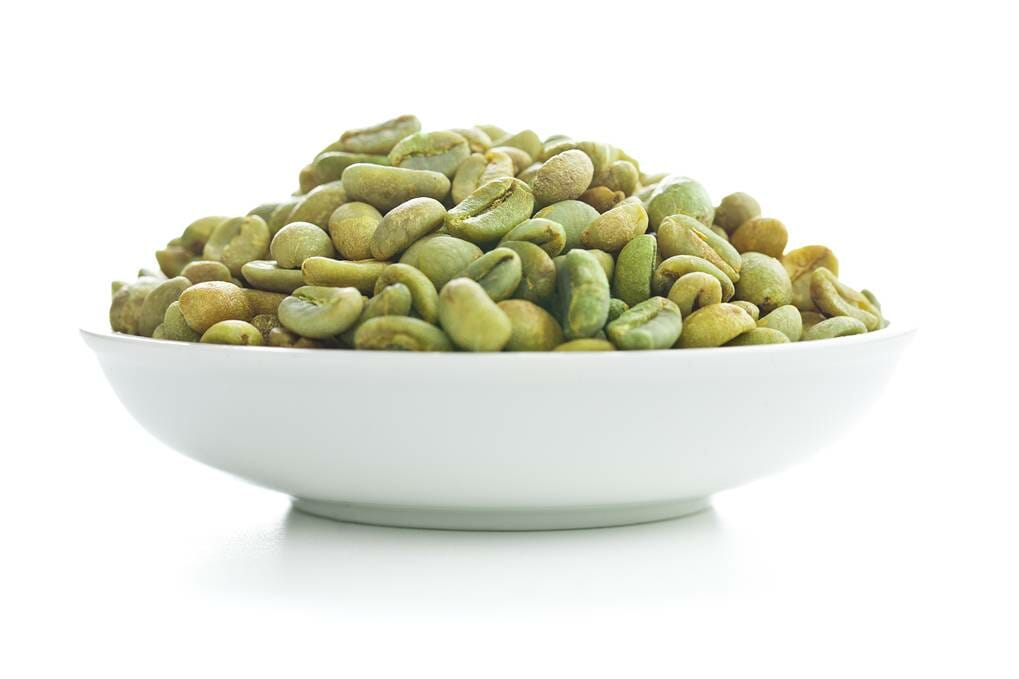You do love coffee? Are you tired of having to grind those delicious coffee beans into coffee grounds before brewing and drinking them as liquid coffee?
Do you ever stare lovingly but intently at those delicious roasted beans, wishing you could just pop them in your mouth whole and chew, but aren’t sure if it’s safe?
Can you eat Coffee Beans? If it’s legal? Well you’ve come to the right place.
Here at Coffee Geek, we love drinking coffee more than most people, and that passion has led us to explore every potential coffee-based experience we can think of.
Along the way we got hungry and all we had were some whole coffee beans left over from our morning brew.
So we ate them. And now we’ll tell you whether you can, too. Hint: you totally can.
What We’ll Cover?
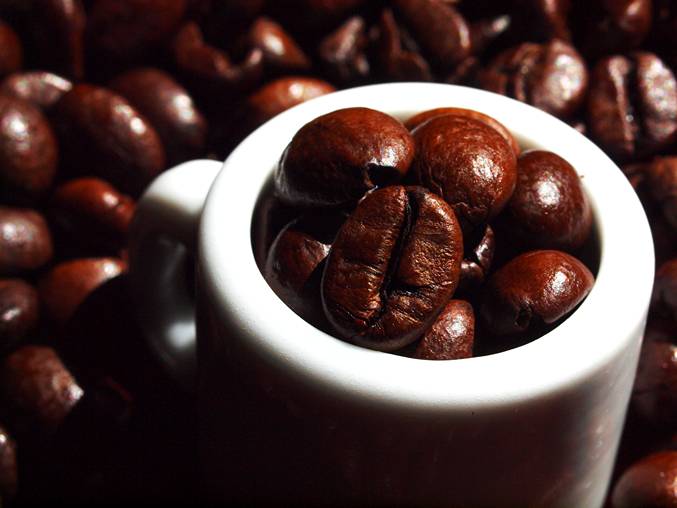
Green coffee beans vs. roasted beans
Are coffee beans actually edible? Is eating coffee beans enjoyable?
Health benefits effects of coffee beans
Some of the best and most popular ways to eat coffee beans in different forms
Raw Coffee Beans or Roasted Coffee Beans?
That is the question… that we first have to answer to accurately discuss the topic.
Many coffee lovers are blissfully unaware (as were we, in the early days) that the brown, crispy coffee beans we grind to make liquid coffee aren’t just dried-out versions of the raw beans that come off the coffee plant.
In purely raw form, coffee beans are green, and look uncannily like a cross between a lima bean and a peanut.
Raw green coffee beans get brown and crispy when they’re roasted, which is a standard part of the harvesting and processing procedure that takes place before they’re packaged and shipped off to sellers.
Can You Eat Coffee Beans?
You may be very pleased to know that eating coffee beans is entirely possible. They’re edible, digestible, and even nutritious.
Whether you’ve realized it or not, you’ve probably come across coffee beans prepared and packaged to be eaten whole.
We’ll identify some of the most popular forms of coffee beans meant for eating (like chocolate-covered coffee beans) later on in the article.
When you start examining coffee bean consumption it quickly becomes clear that the question is less, “you can eat coffee beans?” and make it more “should you eat them?”
But more relevant than either of those questions is whether or not you’ll actually want to.
Is It Enjoyable To Eat Coffee Beans?
On their own, whether you’re considering roasted coffee beans or raw coffee beans, the answer is “probably not.”
There’s a reason the vast majority of coffee consumption is done by drinking coffee despite the bean itself being as old as history itself.
As you may have guessed, coffee beans have a strongly bitter taste, and whole-roasted coffee beans even more so.
But just because something is a bit too harsh on the tastebuds all on its own doesn’t mean it can’t be made into something delicious.
And considering the many advantages and benefits that can be enjoyed from eating coffee beans, it’s no wonder humans have come up with so many different ways to do just that.
Does Eating Coffee Beans Have Health Benefits?
It certainly does have benefits. But it’s worth noting that they’re largely considered to be very similar to the benefits you’ll get if you drink coffee within reason.
Some of the Key Benefits Include:
Coffee beans are a great source of fiber
They contain high levels of health-boosting antioxidants
They are, of course, a fantastic source of caffeine
They can help fend off migraines
Recent studies suggest a limited regular intake of coffee can actually work to prevent cognitive decline and other neurological afflictions
What About the Risks of Eating Coffee Beans?
As with anything, but especially something containing a stimulant—as caffeine is classified—eating coffee beans, just like drinking coffee, should be done in moderation.
Caffeine Intake
The maximum recommended caffeine intake is around 400mg per day.
That works out to just about 4 cups of liquid coffee. So in terms of how many coffee beans you will safely eat, it boils down to their caffeine content.
Depending on that, capping your daily coffee bean snacking at around 30 beans is likely a safe threshold.
Beyond that amount, and even well within it depending on your body chemistry, preexisting conditions and digestive sensitivities, eating roasted coffee beans regardless of how they’re prepared may cause negative effects.
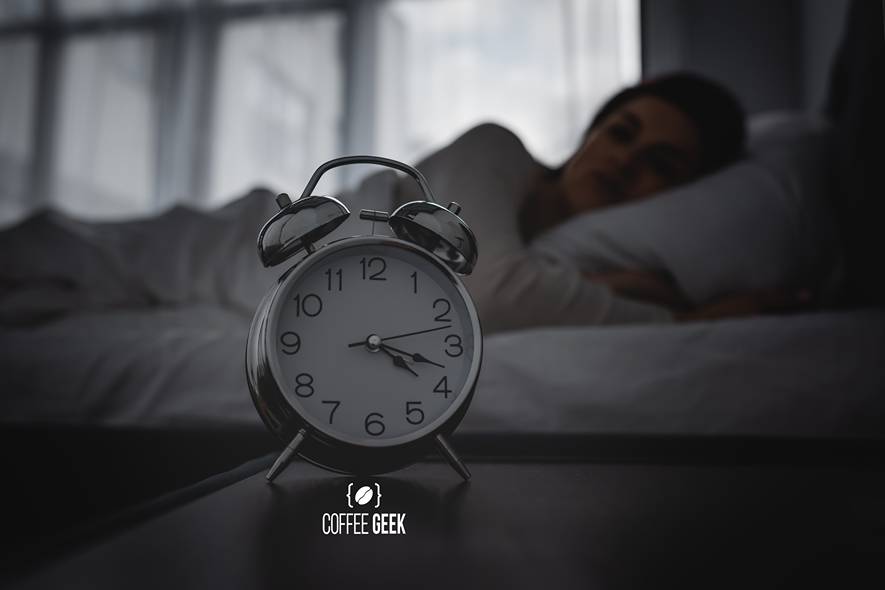
Potential Risks and Downsides of Eating Coffee Beans
They have a laxative effect
They can cause or exacerbate sensitive anxiety
They can be harsh on the stomach and cause heartburn or other digestive discomfort
They can cause insomnia or disrupt your quality of sleep
Too much caffeine can cause or exacerbate hypertension or other heart-related problems over time
Because caffeine is a stimulant, consuming too much of it on a frequent basis can cause you to experience withdrawal symptoms if you don’t maintain your intake
Different Ways to Eat Coffee Bean
Because for many people, the potential health benefits outweigh the risks, which most find controllable to within an acceptable standard, there are naturally lots of people that eat raw coffee beans.
As a result, humanity has developed more than one way to eat roasted coffee beans especially.
Chocolate-Covered Coffee Beans
Chocolate-covered coffee beans are an all-time favorite for coffee lovers looking for an eatable alternative to brewed coffee for a change.
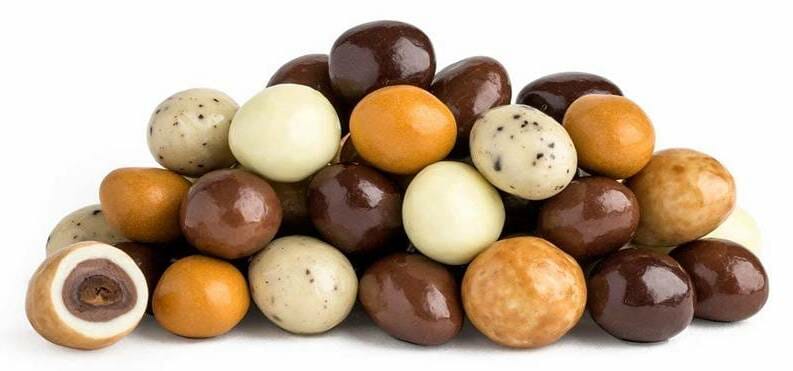
Roasted beans on their own are also edible, you can eat them, but they are quite bitter and more importantly, gritty.
The grittiness is wonderfully mitigated by the smoothness of the chocolate, making chocolate-covered coffee beans a real treat and an excellent way to try eating coffee for the first time.
Chocolate-covered beans also make a fantastic gift for any coffee lovers in your life who are otherwise fully kitted out with everything they could want for brewing coffee.
Mixed Into A Shake or Smoothie
Of course, like most edible substances you can grind, coffee beans can be a fantastic addition to a superfood smoothie or protein shake recipe.
A superfood themselves, coffee beans are a great way how to give a little kick to your juice recipe or other blended beverage, both in terms of taste and for a caffeine fix.
With the Coffee Cherries Included
A very interesting detail we glossed over is that coffee “beans” are actually seeds from the coffee cherry fruit that grow on the coffee plant.
Nowadays there are unique and innovative takes on caffeinated beverages being made with the entirety of the fruit included, and they make for some very interesting drinks.
The cherry itself is also edible, so eating coffee beans with the fruit included is another way we do technically “eat” coffee.
However…
Just Eat Raw Coffee Beans (Green Coffee Beans)
The reason almost every coffee bean you’ve likely ever seen is thoroughly roasted is a good one.
Green coffee beans—as they are when they’re raw—are terribly tough, with a taste that’s often overwhelmingly earthy.
The roasting process brings out the best of the flavor in the coffee beans, which is why you don’t often see products like coffee grounds or chocolate-covered beans made from these raw green coffee beans.
So if you were to pluck a coffee cherry straight from the plant and eat coffee beans whole size, fruit and all, be aware that you’d also be signing up to eat those coffee beans entirely un-roasted and raw.
What About Espresso Beans?
Espresso beans are simply a darker roasted form of coffee bean, so there’s little difference to everything we’ve discussed when applied to these darker roasted beans.
The most significant difference in the taste since espresso beans will be definitely more bitter and have a noticeably more “burnt” flavor to them.

